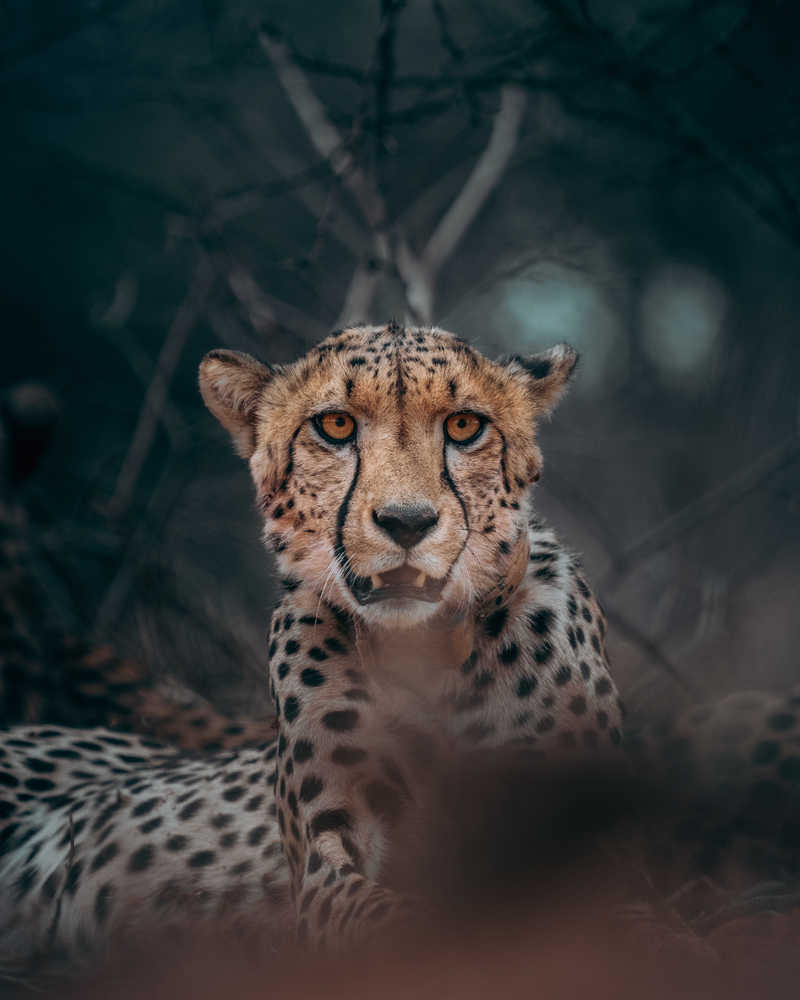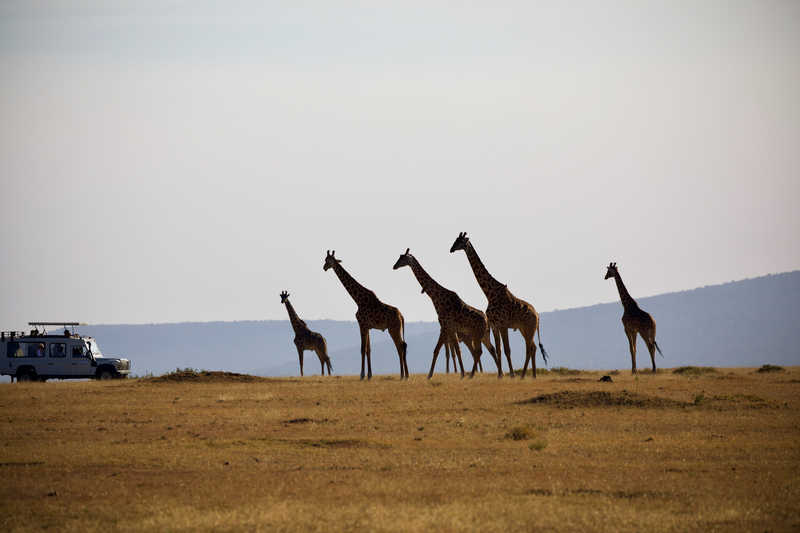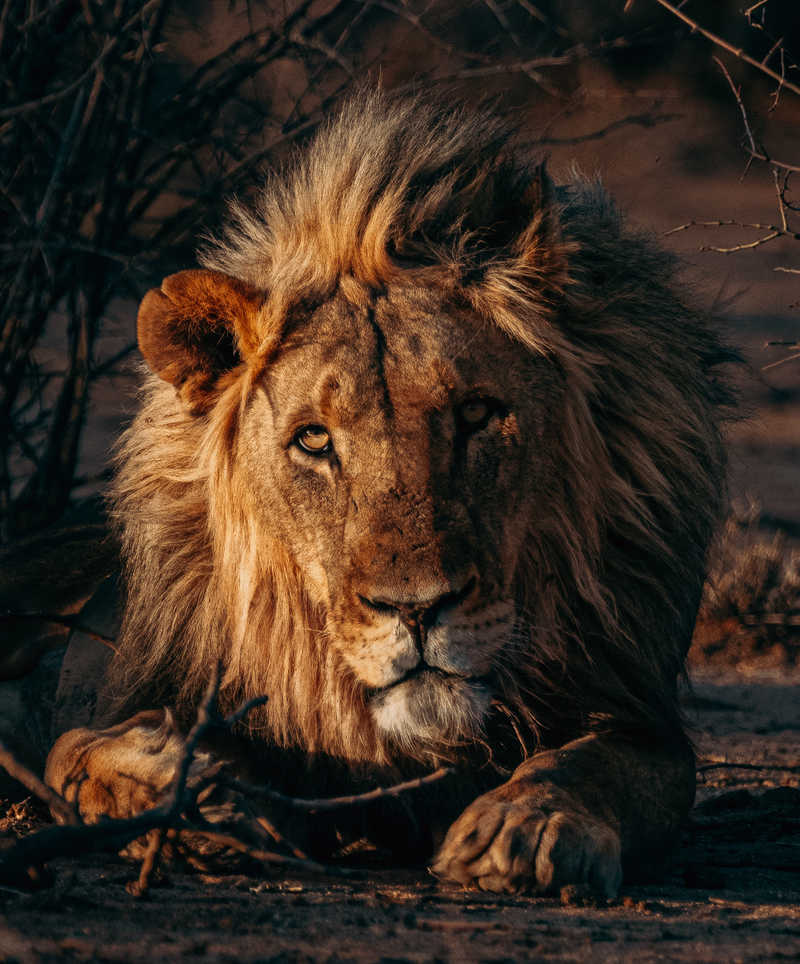The Machame Route with Crater Camp
- Kandoo Summits
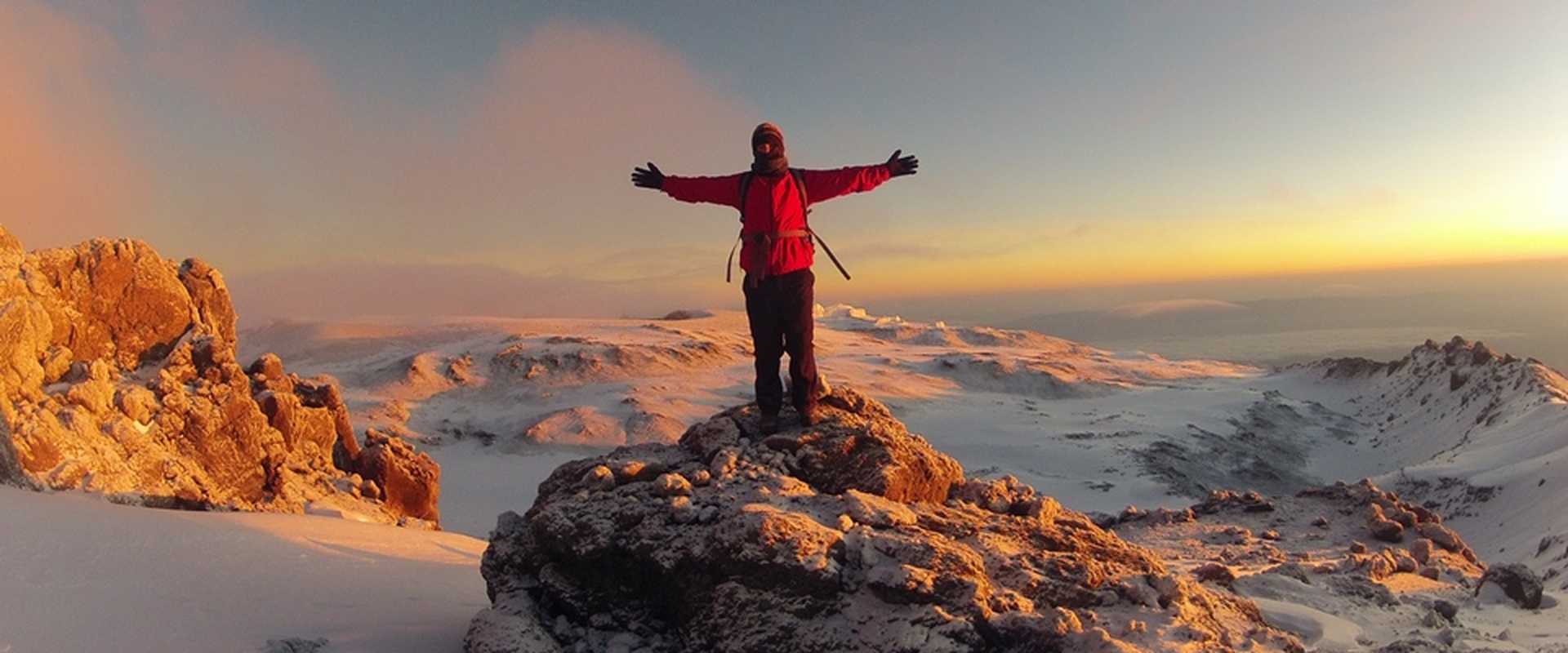
Contact
our UK team
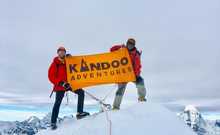
All trekkers need to organise their own flights to Kilimanjaro International Airport (JRO). From JRO we will arrange a private transfer to your hotel. That night or early the next morning you will meet your local Kandoo representative and have a full pre-climb briefing.
Transfer from your hotel to Machame Gate for registration. Our porters prepare and pack our supplies and luggage before we start our ascent along the forest trail to Machame Camp at 3000m. We will stay here overnight.
After breakfast we start walking, leaving the rainforest behind, and continue our ascent, crossing a small valley and up to a steep rocky ridge, covered with heather. Our route now turns west into a river gorge until we reach Shira Cave Camp. It will be colder tonight than the previous night with temperatures possibly falling below freezing.
Today we will climb up to 4600m to the base of the Lava Tower for lunch and acclimatisation. This will be our toughest day so far and you may, for the first time, feel the altitude. After lunch we will descend again by almost 650m to Barranco Camp, following the ‘walk high, sleep low’ golden rue of acclimatisation. Our descent to Barranco Camp takes about 2 hours and offers great opportunities to take some beautiful photographs of the Western Breach and Breach Wall. The camp is situated in a valley below the Breach and Great Barranco Wall.
A short, but fun, day starting with a scramble to the top of the Great Barranco Wall. We then traverse over scree to the Karanga Valley (3930m) beneath the icefalls of the Heim, Kersten and Decken Glaciers. We will stay overnight at Karanga campsite.
We leave Karanga campsite behind to meet the junction connecting with the Mweka descent trail. From here we continue up to Barafu Camp. Here we can rest, enjoy dinner, and prepare for the summit day. The camp offers amazing views of the summit and the two peaks of Mawenzi and Kibo.
You will be woken around 07:00. We start our trek to the summit between the Rebman and Ratzel glaciers through heavy scree up to Stella Point on the crater rim. This is the most mentally and physically challenging part of the trek. At Stella Point (5732m), we will stop for a short rest. We are now only an hour away from the summit, Uhuru Peak (5895m), the highest point on Mount Kilimanjaro and the continent of Africa. After celebrating with a few summit photos, we begin our descent into Kibo Crater to camp for the night. The scenery is breathtakingly unbelievable and depending on the time of year, you will see the fast-receding glaciers set amidst either sandy, desert or snowy conditions.
We wake up early to hike to the Crater Rim in time to see the sunrise. From the rim, we descend to Mweka Hut campsite. Trekking poles will be needed for the loose gravel going down to Mweka Camp (3100m). Later in the evening, we will enjoy our last dinner on the mountain and a well-earned sleep.
Your final day on the trek, departing after breakfast we descend a further 1300m to the Mweka Park Gate to pick up your summit certificates from the Park Headquarters. Transfer to your hotel.
After a much needed nights rest, we will bid you goodbye. If you have arranged airport transfers with us or a safari / Zanzibar trip, we will collect you in the morning for your onward journey.
The Machame route with Crater Camp is considered relatively tough. Depending on your level of fitness, you will be trekking for 6-7 hours nearly every day, at increasingly higher altitude. For the summit ascent, you will need to be prepared for a whopping 12-15 hours on your feet! Climbing up for 6-8 hours and descending back down for 6-7 hours. Arriving in great physical condition and with a tough mental "Kandoo" attitude will be your key to success!
Novice climbers are sometimes nervous about how they will cope with the Great Barranco Wall, but this is just a short scramble that is really not that tricky - you will be helped by your guide every step of the way. One stride around a rock outcrop is the most precarious part you will experience. Thousands of climbers safely travel this route each year, let alone the Kilimanjaro porters carrying heavy loads.
CLIMBING BAG WEIGHT
On 1st
June 2019, Tanzania introduced a ban on all single-use plastic bags. Please support this fight against plastic by
using more sustainable alternatives in your luggage, such as packing cubes and
dry bags. Passengers with plastic bags in their luggage may be asked to
surrender them on arrival at the airport.
The zip-lock bags required to carry
liquids and toiletries in cabin baggage on airplanes will still be permitted.
Please take some time to read our Kilimanjaro Training Guide which is full of helpful tips on how to get physically prepared for your climb.
We work closely with the Kilimanjaro
Porters Assistance Project and they have recommended the following tipping
procedure. To give you a guide, KPAP recommended tips for porters are in the
range of $6-10/day per porter. For other
roles we recommend $20/day for guides, $12-15/day for assistant guides and
$12-15/day for cooks. These figures are per group, not per climber. You will be
sent a copy of the tip recommendations and the estimated crew numbers for your
group. The size of your crew can only be confirmed on the first day of the
climb once all the bags and equipment have been weighed at the park gate. At
the first camp you will be advised of the final number of crew and their
position on the climb.
You may also find on your summit
attempt that some of the porters accompany the group to provide additional
assistance. This is an additional task that they carry out in order to support
you having the best chance of reaching the summit. Please show your
appreciation for any help you receive by tipping these porters directly. We
would suggest an extra tip of $20.
The tipping announcement will take place
on the last night on the mountain when all the crew will gather together to
celebrate with you. One representative from your group should say a few words
of thanks, which will be translated by the lead guide into kiSwahili.
Due to recent thefts on Kilimanjaro, we
no longer advise our clients to carry cash with them during the climb, so the
actual tip money will be presented when you return to your hotel. Your group
will be supplied with envelopes to assist with the distribution of tips – one
envelope for the porters and a separate envelope that you can use to tip your
lead guide, assistant guides and cook. Three porter representatives will come
to the hotel to accept the tip envelope on behalf of all the porters, and they will
distribute the money themselves.
If
you’ve decided to rent gear, then below is a list of equipment available.
Just let our team know what you’d like to
hire at your Pre-Climb Briefing. All
payments are made locally in US
Dollars (cash only).
UPPER
BODY
FEET
Want to ask us a question or book a private trip? Don't hesitate to contact us!
Contact us